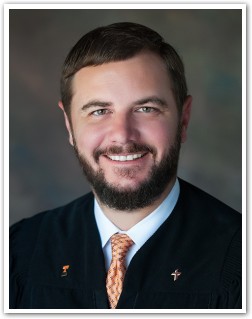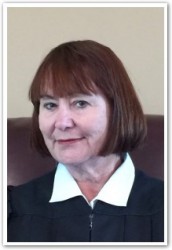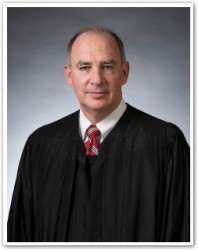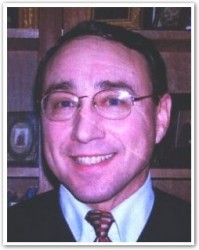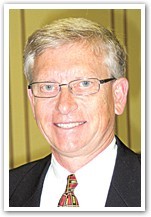Tennessee’s many recovery courts play a critical role in reducing recidivism and improving the lives of those with substance use disorders in the state. These intensive court programs give repeat offenders a chance to break the cycle of their addiction and become productive members of society through the application of evidence-based treatment techniques and a “hands-on” approach from court staff and program partners. Recovery court participants meet regularly with the judge presiding over their program as well as with counselors, recovery groups, and others who forge relationships with them and become invested in their success.
The Tennessee court system has remained open throughout the ongoing pandemic, operating under provisions established by a series of Tennessee Supreme Court orders. These orders have limited in-person proceedings and called for the establishment of health and safety guidelines for court users and staff. As a result, courts throughout the state have had to adapt to new conditions, innovating new ways to conduct business. Recovery courts have done the same, delivering services in slightly modified ways.
Below, several state judges who preside over recovery courts explain how they have worked to keep those courts running over the past few months
10th Judicial District Circuit Court Judge Andrew Mark Freiberg
Judge Freiberg presides over the 10th Judicial District Recovery Court and the 10th Judicial District Mental Health Court, which covers Bradley, McMinn, Monroe, and Polk Counties. Judge Freiberg has utilized a mixture of social distancing and remote video technology to adapt his courts to the pandemic.
“We’ve been able to overcome some difficulties and challenges, and people are doing really well,” he said.
Some of the largest challenges that the recovery court faced came early in the pandemic, just after the Tennessee Supreme Court issued its first order limiting in-court appearances.
“Our treatment provider shuttered its doors, and they were doing remote telemedicine, however you had participants with extreme addiction treatment needs who were used to being in session for 2 ½ hours per night, 3 times a week suddenly being told to call in or Skype in for 15 minutes, 3 times a week,” he said. “We were very concerned about the level of care we were providing and its impact on the participants. The whole goal of recovery court is to provide participants with stability and structure because they have so many difficulties in their lives when they’re in the initial stages of recovery, and all of a sudden because of the pandemic we were not able to provide that stability for them.”
Thankfully, the treatment provider opened back up and made some changes to how the group sessions were held. Instead of one large group session, the provider switched to several small group sessions, each with fewer than 10 participants. This allowed for greater social distancing and still provided participants with the benefit of meeting with their peers, which Judge Freiberg said is a key part of recovery court.
“If they are with their peers, people who are struggling as they are, the message can really resonate,” he said.
Judge Freiberg has also changed his weekly in-person meetings with court participants to remote Skype meetings.
“The participants who knew me face-to-face in court have handled the Skype consultations with me seamlessly,” he said. “It’s not been an issue at all.”
In the coming weeks, Phase 1 participants may start appearing for one-on-one consultations with Judge Freiberg in the courtroom. That way, an in-person rapport can be established before moving to Skype interactions.
One of the collateral effects of the pandemic has been a rising number of overdoses, suicides, and domestic violence incidents nationwide. Judge Freiberg says he has seen those increases in his jurisdiction and was concerned that they may affect Recovery Court participants. A couple of Recovery Court participants did overdose a couple of months ago, but they survived.
Judge Freiberg said that the Mental Health Court participants actually seem to be thriving in the current environment. For some, general anxiety and apprehension about social contact are familiar states of mind now pervasive in society.
“The world is now operating at their speed,” he said.
One other change Judge Freiberg has made to his courts has to do with graduation. Back in May, six participants were due to graduate from Recovery Court. Rather than cancel the ceremony, Judge Freiberg and the recovery court team decided to do something different and held a drive-through graduation ceremony in the justice center parking lot. As each graduate was recognized they would pull up in their vehicle and a recovery court coordinator wearing gloves and a mask would hand them a plaque, a cupcake, and a microphone so they could share their story. In response, the others in the parking lot would honk their horns, cheer, and whistle.
“It was certainly different, but the participants seemed to cherish the fact that they had a ceremony,” Judge Freiberg said.
23rd Judicial District Circuit Court Judge Suzanne M. Lockert-Mash
Judge Lockert-Mash presides over the 23rd Judicial District Recovery Court, which serves Cheatham, Dickson, Houston, Humphreys, and Stewart Counties.
The 23rd Judicial District Recovery Court is a residential program consisting of five houses where participants live and have treatment meetings. In addition to living together, many participants also work together at local businesses, who are happy to hire employees going through the program.
Judge Lockert-Mash and the Recovery Court staff have implemented remote video technology and social distancing to keep participants safe and on the road to graduation from the program.
“We’re carrying on with the only difference being we’re not meeting in person,” she said. “We’re having graduations at the house with everyone wearing a mask.”
Every Thursday at 5 p.m., Judge Lockert-Mash meets with participants via Zoom to check on their progress and behavior from the prior week. Some counseling is being done via Zoom as well, although other requirements of the program, including Alcoholics Anonymous and Narcotics Anonymous meetings, are taking place in the homes.
The fact that the program is a residential one mitigates potential problems related to isolation for the participants.
“They’ve done really, really well,” Judge Lockert-Mash said. “They have that support there. They’re not isolated, and they’re all in the same boat. I’m just real proud of them.”
That support includes not only other participants, but graduates who have gone on to work for the recovery court.
“I’ve seen three of our recovery court directors who are graduates,” Judge Lockert-Mash said. “That’s one reason why our program is so good. They hurt when people fail; they celebrate when people make it. They have lived the life that our participants have lived so they know what is going on.”
Due to the pandemic, outside visitation from friends and family was suspended to the houses, as was the issuing of recreational passes for activities outside of the home. The only real pandemic-related disturbance the judge has seen among participants in the last several months is when two people went on an unauthorized trip to buy milkshakes during the day when their workplace was temporarily closed.
Even with the pandemic, Judge Lockert-Mash is still excited to see how the recovery court is changing the lives of participants, some of whom she knew in her former position as a prosecutor.
“It just tickles me to see some of the people come in and say, ‘Oh no, that’s the woman who prosecuted me,’ and when they graduate I’m the first one to give them a big hug,” she said.
25th Judicial District Circuit Court Judge J. Weber McCraw
Judge McCraw presides over the 25th Judicial District Recovery Court, which covers Fayette, Hardeman, Lauderdale, McNairy, and Tipton Counties.
Judge McCraw will be the first to tell you that he has not had to make any drastic changes to how the 25th Judicial District Recovery Court operates because of the pandemic.
“We did a few Zoom meetings, but I just felt like we need to get back in the same building together,” he said. “We are low volume enough and some of these rural courtrooms are bigger than your big city courtrooms. We can distance ourselves and still be able to have face-to-face conversations. They aren’t as close quarters, but we are still in the same room and can talk.”
There was a brief period where they could not gather in court and where Zoom capabilities had not been set up when Judge McCraw said he was concerned about accountability, but that quickly passed and now the court is humming along.
“It has continued to work pretty well,” Judge McCraw said.
Part of the reason for the move back to in-person gatherings is because Judge McCraw actually determined that people would be able to distance more effectively in the courtroom than when using Zoom. That is because in his rural district, some participants lacked Zoom capabilities at their homes. These participants would therefore meet together in a different space which was not as large as a courtroom.
“I felt like I was responsible for keeping participants distanced from each other as much as I could,” Judge McCraw said.
Several months into the pandemic, Judge McCraw sees the importance of recovery courts more than ever.
“It is important that recovery courts continue, that people can get affirmation that yes there are struggles that you’re having and that we can work through these together,” he said. “It’s real refreshing to see somebody really changing their life. It’s very rewarding.”
With Covid-19 numbers back on the increase in many parts of the state, Judge McCraw knows more challenges may lie ahead, but he also knows that his recovery court staff are more than willing and able to meet those challenges head on.
“We’re learning as we go,” he said. “If something works well, we do it. If something doesn’t work well, we learn from that and move on. We have a very compassionate group of people who are very talented. Recovery court works well because when you buy into it you see that these people really care about my improvement. It’s not just a job. That’s when it clicks.”
Sumner County General Sessions Court Judge James Hunter
Judge Hunter presides over the Sumner County Recovery Court alongside 18th Judicial District Circuit Court Judge Dee David Gay.
Early in the pandemic, changes were made to the court’s method of drug testing as well as to its meetings.
“When it first started and we were limited on bringing people in we could not meet as a group anymore and they were coming in just one at a time,” Judge Hunter said. “They would meet in the lobby with the drug court director and instead of taking a urine drug test we went to a patch. They also had different reporting times because we couldn’t meet as a group.”
In recent weeks, the Court has resumed in-person review meetings, limiting them to about 30 at a time to allow for social distancing. Everyone is required to wear a mask in a Tennessee courtroom as a result of a recent Tennessee Supreme Court order, but Judge Hunter said that most attendees were already wearing masks anyway.
“We’re kind of back to normal again,” Judge Hunter said. “The only problem we’re having now is that we cannot have a graduation. Usually, we have one in May.”
Judge Hunter is thankful that the court has been able to go back to in-person meetings because he thinks that they play a crucial part in giving program participants the support they need to continue the recovery process.
“It’s that personal contact,” Judge Hunter said. “That’s probably one of the strongest components of any recovery court, that personal contact you have with the staff and the judge to show that they are there for you, that they are there to help you, they care about you, they are there to listen to you and not just be condemning. A lot of these people have never had that kind of support before, and they really like to be able to sit down with the judge and the counselors and really talk out problems rather than just being punished. When they weren’t having all that much personal contact with people in the program, I think that did cause more relapse, but thank goodness we did not have any overdoses.”
Judge Hunter said he has not heard any of the participants express specific pandemic-related problems to him that could jeopardize their recovery, but he said the situation has certainly been difficult for everyone.
“Any time you go through a sudden change like that, it kind of throws you off; you’re off your rhythm,” he said.
Judge Hunter said that the program’s success in changing lives was largely due to the court staff, including Recovery Court Director Tracye Bryant.
The participants “really appreciate what this program helps them do,” he said. “They are truly appreciative of what they are able to get accomplished now that they just couldn’t do before.”
Obion County General Sessions Court Judge Jimmy C. Smith
Judge Smith presides over the 27th Judicial District Recovery Court alongside Weakley County General Sessions Judge Thomas L. Moore, Jr. Twenty-Seventh Judicial District Circuit Court Judge Jeff Parham handles violations and revocations for the court. The Recovery Court covers Obion and Weakley Counties.
“It’s been challenging to say the least,” Judge Smith said about the process of grappling with the fallout from the pandemic. “Fortunately, we’ve got a really good team.”
One of the biggest challenges facing the 27th Judicial District Recovery Court has been that the local probation office building where program participants go for their group treatment sessions has put a strict limit on how many people can enter. As a result many of those sessions are being held via Zoom, which has its drawbacks in Judge Smith’s view.
“It’s so different when people are at home doing something on their phone or computer instead of in a room together,” he said. “It gets a little too informal sometimes. We’re looking forward to getting back where everybody gets together in the same place.”
Even if Zoom may not be perfectly suited for these sorts of group sessions, it is still far better than nothing, and Judge Smith and the recovery court staff have done their best to maximize its potential. For instance, not all Court participants had access to the technology required to conduct Zoom meetings, so Judge Smith and court staff utilized grant funding from the Tennessee Department of Mental Health and Substance Abuse Services to acquire cell phones for those participants so that they could use Zoom.
“As hard as all this has been on everybody it has made us look at new and better ways to use technology,” he said. “That can benefit us going forward.”
While in-person group meetings are on pause for now, there has been space for treatment providers to do some one-on-one sessions with participants.
In those “they really get to dig deep into some individual issues with folks,” Judge Smith said. “There’s always a bit of a silver lining. It’s not ideal, but you figure out ways to do things and once you figure that out there are some benefits you didn’t expect to reap from doing it a new and different way.”
Treatment meetings are not the only component of the program that has been affected by the pandemic. Judge Smith has had to think up new ways to conduct his regular weekly consultations with participants as well. The solution has been to hold these meetings outdoors, in the parking lot of the probation office.
“It’s a little hot, but it’s not the dead of winter,” Judge Smith said. “We try to work it into the shade area.”
At one of these recent parking lot proceedings, Judge Smith heard a story from a participant that he’s heard numerous times before, from many different people. It’s a story that encapsulates what Recovery Court is all about.
“One young man said recovery court has saved his life,” Judge Smith said. “Not just physically, although he did get off drugs and was able to deal with his cancer, but the fact that he’s living a completely different life now and has a whole new lease on life.”
